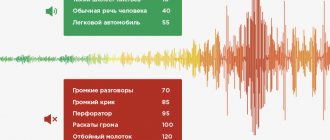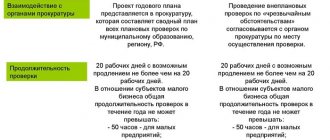How to properly file an appeal in criminal proceedings?
The mere fact that in the Russian Federation, according to the latest statistics from the Judicial Department at the Supreme Court of the Russian Federation, the share of acquittals in the total number of final court decisions made by courts in criminal cases is 0.3%, allows us to conclude that the appeal stage is faced a significant number of defendants In addition, this procedural mechanism is often resorted to by victims who are dissatisfied with the outcome of the criminal case, as well as persons who were not involved in the proceedings in the criminal case, but whose interests are affected by the decision made in the case (for example, the verdict imposed foreclosure on the property of a person who is not the accused, in order to compensate for the damage caused by the crime).
This article will highlight some of the subtleties that you need to know when filing an appeal in criminal proceedings.
First of all, it should be noted that a complaint against a judicial act is not filed directly with a higher court, but through the court that made the appealed decision (Article 389.3 of the Code of Criminal Procedure of the Russian Federation). For example, if the decision was made by the Tverskoy District Court of Moscow, then the complaint is filed through the said district court to the Judicial Collegium for Criminal Cases of the Moscow City Court.
In addition, it is necessary to outline the circle of persons who have the right of appeal in criminal proceedings.
Article 389.1 of the Code of Criminal Procedure of the Russian Federation states that the right of appeal belongs to the convicted, acquitted, their defenders and legal representatives, the state prosecutor and (or) a higher prosecutor, the victim, the private prosecutor, their legal representatives and representatives, as well as other persons insofar as in which the appealed court decision affects their rights and legitimate interests. Thus, if you are not a participant in criminal proceedings, but within the framework of it a court decision has been made that affects your rights (for example, the decision allows the seizure of property belonging to you, a search of your home, or if the verdict does not allow the fate of material evidence, which belongs to you), then you have the right to file an appeal against a court decision with which you do not agree.
It is also necessary to determine the list of judicial acts that can be appealed. All decisions made during criminal proceedings are divided into intermediate and final. Final decisions include those that resolve the case on its merits: a verdict, a decision to terminate a criminal case, and so on. All final decisions may be appealed.
Interim ones include those that are issued during the pre-trial and judicial stages of a criminal case on certain current issues that arise during the proceedings. We should immediately make a reservation that not all interim judicial acts are subject to appeal. The list of interim acts against which an appeal can be filed is enshrined in paragraph 3 of Art. 389.3 Code of Criminal Procedure of the Russian Federation. These include: decisions of the magistrate to return the application to the person who filed it, or to refuse to accept the application for proceedings; court decisions or rulings on the selection of a preventive measure or on the extension of its validity, on the placement of a person in a medical organization providing medical care in an inpatient setting, or in a medical organization providing psychiatric care in an inpatient setting, for conducting a forensic examination, on the seizure of property, on establishing or extending the period of arrest imposed on property, on suspending a criminal case, on transferring a criminal case to jurisdiction or on changing the jurisdiction of a criminal case, on returning a criminal case to the prosecutor; other court decisions affecting the rights of citizens to access justice and to consider a case within a reasonable time and preventing further progress of the case, as well as private rulings or decisions. Other court decisions include, including, as explained by the Supreme Court of the Russian Federation in Resolution of the Plenum of November 27, 2012 N 26 “On the application of the norms of the Criminal Procedure Code of the Russian Federation governing proceedings in the appellate court”, a decision on the appointment of a court hearing, court decisions on the imposition of a monetary penalty and on the conversion of the pledge to state revenue.
Determinations or decisions on the procedure for examining evidence, on satisfying or rejecting petitions of participants in the trial and other court decisions are appealed simultaneously with the final court decision in the case, i.e. judicial acts issued during the judicial stage of criminal proceedings.
It should be noted that interim court decisions can be appealed to the court only until the final decision in the case is made, with the exception of decisions on choosing a preventive measure in the form of detention or house arrest, on extending the validity of this preventive measure, or on placing a person in prison. a medical or psychiatric hospital for conducting a forensic examination, as well as decisions not related to the resolution of the case (for example, imposing a monetary penalty for failure to appear in court or violation of order at a court hearing).
An important issue is the deadline for filing an appeal in criminal proceedings.
Paragraph 1 of Article 389.4 of the Code of Criminal Procedure of the Russian Federation establishes a general deadline for filing an appeal - within 10 days from the date of the decision. At the same time, the Code of Criminal Procedure of the Russian Federation provides for special deadlines for appealing decisions in the appellate manner. First of all, this concerns the filing of appeals against decisions on the election and extension of a preventive measure. Complaints against court decisions on these issues are filed within 3 days from the date of their issuance (Clause 11, Article 108 of the Code of Criminal Procedure of the Russian Federation). In this case, this procedural period includes weekends. The court, when rendering a verdict, in accordance with Art. 299 of the Code of Criminal Procedure of the Russian Federation resolves the issue of the measure of restraint in relation to the convicted person. At the same time, not everyone knows that the decision on the issue of a preventive measure contained in the sentence can be appealed separately from the sentence. Even if they do know, many people forget that this decision is subject not to the general procedural period for appealing the verdict - 10 days, but to the special one - 3 days.
Considering that the volume of the verdict can be significant and requires a long time to study it (especially for multi-episode criminal cases with a large number of defendants), it is recommended to file a so-called short appeal against the verdict on the day of its announcement. Otherwise, there is a risk of missing the deadline for filing an appeal. Subsequently, the arguments of the appeal can be supplemented, which will be discussed below.
As for the content of a short appeal, it is enough to present in abstract form the arguments on which the participant in the process does not agree with the decision made. But a prerequisite for this is reference to the grounds for reversing the sentence provided for in Art. 389.15 Code of Criminal Procedure of the Russian Federation. These include, for example, the injustice of the verdict, the discrepancy between the court’s conclusions and the actual circumstances of the case, and significant violations of the criminal procedure code. If this condition is not met, there is a risk that the court will return the complaint to the applicant to eliminate the deficiencies.
The person filing the appeal can always supplement its arguments. In some cases, this is necessary because new arguments have been found in favor of the position taken in the case. This is often due to the fact that the protocol of the court hearing was not prepared by the court of first instance in a timely manner. Sometimes this makes sense for tactical reasons - for example, if the person appealing the verdict does not want to immediately share all his arguments with procedural opponents. For this purpose, the Criminal Procedure Code in Article 389.9 of the Code of Criminal Procedure of the Russian Federation provides a special mechanism in the form of filing an additional appeal. This complaint must be received by the appellate court no later than 5 days before the start of the court hearing. This means that it can be filed in the trial court if the case has not yet been sent to the appellate court. Or no later than 5 days in advance directly to the court of appeal, if the case has already been received from the court of first instance.
It should be borne in mind that, in accordance with established practice, courts accept additional appeals only from those persons who filed a “regular” appeal within 10 days from the date of the verdict. For this reason, lawyers who have accepted an assignment to protect the interests of their clients after the expiration of the 10-day period for filing a complaint and, if their clients have already filed their complaints independently or through other lawyers, are not recommended to file an additional appeal against the verdict, but should be put before the court of first instance, the question of restoring the missed deadline for filing a complaint, or, if the criminal case is already in the court of appeal, draw up your arguments in the form of written explanations and submit them through an expedition or attach them directly at the court hearing.
Almost always, when filing an appeal, there is a need to add new evidence that the court of first instance did not examine. This can be either evidence that changes the essence of the case, or materials characterizing the defendant. Regardless of the type of new evidence, it must be remembered that a person who wants the appellate court to examine new evidence must justify the impossibility of presenting it to the trial court in a separate petition (clause 1.1 of Article 389.6 of the Code of Criminal Procedure of the Russian Federation), which can be filed as together with the appeal, and directly at the court hearing. Valid reasons can be varied: the evidence could have been obtained by the party after the verdict was passed, the person appealing the verdict was not involved in the proceedings in the trial court.
The consequence of failure to submit such a petition along with the appeal, if new materials are attached to it, will entail the return of the appeal to eliminate the deficiencies. Failure to submit such a petition when attempting to add new evidence directly in the court of first instance, or the absence of a convincing justification why this evidence could not be presented to the court of first instance, with a high degree of probability means a refusal to satisfy it.
Appeal to the Supreme Court
Many citizens of the Russian Federation consider the Supreme Judicial Body to be an absolutely inaccessible authority for the average person. In fact, recourse to the help of the Supreme Court of the Russian Federation is available to everyone who needs fair protection. The only condition in this case is compliance with the regulations established by the legislation of the country, including the sequence of stages of production, the procedure for filing a complaint, and so on. An appeal to the Supreme Judicial Authority is recommended when passing through all lower courts without receiving an answer or decision satisfactory to the applicant.
Compliance with established rules and requirements is the key to significantly increasing the chances of a favorable outcome when considering a complaint in the Supreme Court of the Russian Federation. The applicant needs to enlist the support of a qualified lawyer who knows everything about the peculiarities of challenging court decisions in the instance in question and will help represent the interests and rights of the principal from a favorable perspective. The experience of a lawyer will be required, including at the stage of preparing a set of documents necessary for the application. The professional preparation of a reasoned and correctly formatted complaint deserves special attention. Depending on the position of the applicant, the appeal can be sent by mail or delivered in person, according to the schedule and operating hours of the Supreme Court. Upon receipt of a complaint, officials check the application and the accompanying set of documents for compliance with established requirements. The transfer of documents to the authorized judicial unit is carried out within 24 hours after receipt.
Prices for the services of a lawyer in criminal cases
| Appealing a court verdict (one instance) | from 25,000 rub. |
| Consultation with a lawyer by phone, Skype, Telegram, WatsApp. (Consultation is provided only by a lawyer from the MMCA forensic department) | Emergency consultation free of charge |
| Protection at the preliminary verification stage | from 23,000 rub. |
| Defense during the preliminary investigation | from 42,000 rub. |
| Defense during judicial arrest | from 15,000 rub. |
| Defense in criminal court of first instance | from 35,000 rub. |
| Appeal to the European Court (ECHR) for violations by the national authorities of the Russian Federation | from 40,000 rub. |
| Defense in jury trial | from 40,000 rub./month |
| Defense in cases of theft and fraud | from 56,000 rub. |
| Defense in corruption cases | from 120,000 rub. |
| Defense in economic and tax cases | from 100,000 rub. |
| Defense in cases of road accidents | from 42,000 rub. |
| Drug defense | from 35,000 rub. |
| Defense in the World Court in cases of minor and medium gravity | from 27,000 rub. |
| Defense in cases of especially serious charges, as well as cases under investigation by the Investigative Directorate of the FSB of the Russian Federation (IC of the Russian Federation, SD of the Ministry of Internal Affairs) | from 150,000 rub. |






